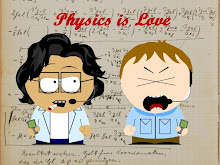Social "Science"... such a term is one of the most offensive of ideas, and usually I am one for offensive ideas, but... puh-lease!
Sitting here in SSR 122, listening to one Harvey C. Mansfield hold a lecture on the idea of θυμος, a Greek (obviously) term denoting "spiritedness," or a human desire to be reckoned. Mansfield's lecture on political science and identity politics claims that the basis of power is recognition. Obviously, considering that he's a Straussian, he tends to ignore any postmodern counterdefinitions of power (though I do not necessarily say that their definition is any better). He mourns the fact that "science" (one can only assume he speaks of natural sciences) attempts to remove the human element of things.
Drawing on classical Greek texts (as can be expected from any perennialist), Mansfield attempts to assert this θυμος as the basis of all political exchange (and, of course, he would object the term "exchange"). He puts on this "human face" and "soul" as the drive of any political action... and yet he attacks science?
I love it when social studies attempt to assert themselves as "science." It's so cute at times, but when I meet perennialists, there's some part of me that starts to gag. It seems to me that the social "sciences" draws too much on the blindness of the humanities, that which we call "spirit." The terms "good," "evil," "humanity," and "self" pollute any honest discourse that attempts to look at an objective reality (let us play the role of agnostic realist--solipsism at heart, but realism just for practical purposes). Whatever arguments the social "sciences" bring out, they depend on what Nietzsche attacks in his Beyond Good and Evil--the Metaphysical World. This second world, based on the folly of Plato and other classicists (not to mention also the Vedic scriptures), is the exact speculative idealism that science challenges. Science does not necessarily discount the existence of a "metaphysical world", but it tests the ideas of those who subscribe this idealism to (1) self-consistency, and (2) objective reality. I know many can argue that this objective reality in itself is something that can be attacked, but does that not make the metaphysical world even more so susceptible to challenge?
I will not go into Mansfield's power formula of science (science= man over nonman), but his continued attack on science is really starting to piss me off. He claims that there are two different types of biologies, for instance--modern biology and the "biology of Aristotle and Plato." I do not believe that the former requires any explanation, but the latter... whooo boy. He claims that the "biology of Aristotle and Plato" is a biology that addresses both the physical body and the spiritual. Obviously, he has never heard of the Scientific Method that separates science from natural philosophy. Philosophy. Such a subject is one I tend to enjoy, even as a scientist because of its acceptance of its own limits (and, of course, the overwelcoming acceptance of the limits of others). However, modern philosophy (modern Analytic philosophy, at least), does not claim any absolutes either. According to Mansfield: "modern biology saves lives, ancient biology helps us understand them better." Ancient biology? You mean zoology? This claim of "meaning" is the problem with the classicists, especially Straussians--the metaphysical values of the Enlightenment are called into question of validity due to their subjectivity and the mere fact that it is based on an interpretation of stochastic data.
Perhaps I am too critical. My approach is somewhat clumsy as it is one that deals with the physical world as opposed to the delightful flowery language of the social/metaphysical world. I have asked Dr. Mansfield whether or not θυμος is a metaphysical property, and he believes it to be physical as it is observable. Of course, there is a wonderful little maxim I love to spout "correlation does not imply causation," but his explanation degenerated into a very confusing and muddling monologue of classical authors and random scientific terms. Perhaps there is more to Alan Sokal and Jean Bricmont's Fashionable Nonsense--although it should be more focused on attacking classicism than postmodernism. Perhaps there is no true academic discipline that is truly honest, save mathematics. At least with mathematics, we have a self-contained system. But the existence of natural numbers and their tendency to break from defined laws...? We are truly lost in our position and we are doomed to be lost in unknowability. Maya maya maya maya...
Wednesday, May 16, 2007
Subscribe to:
Post Comments (Atom)


No comments:
Post a Comment